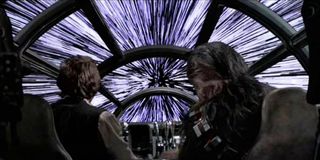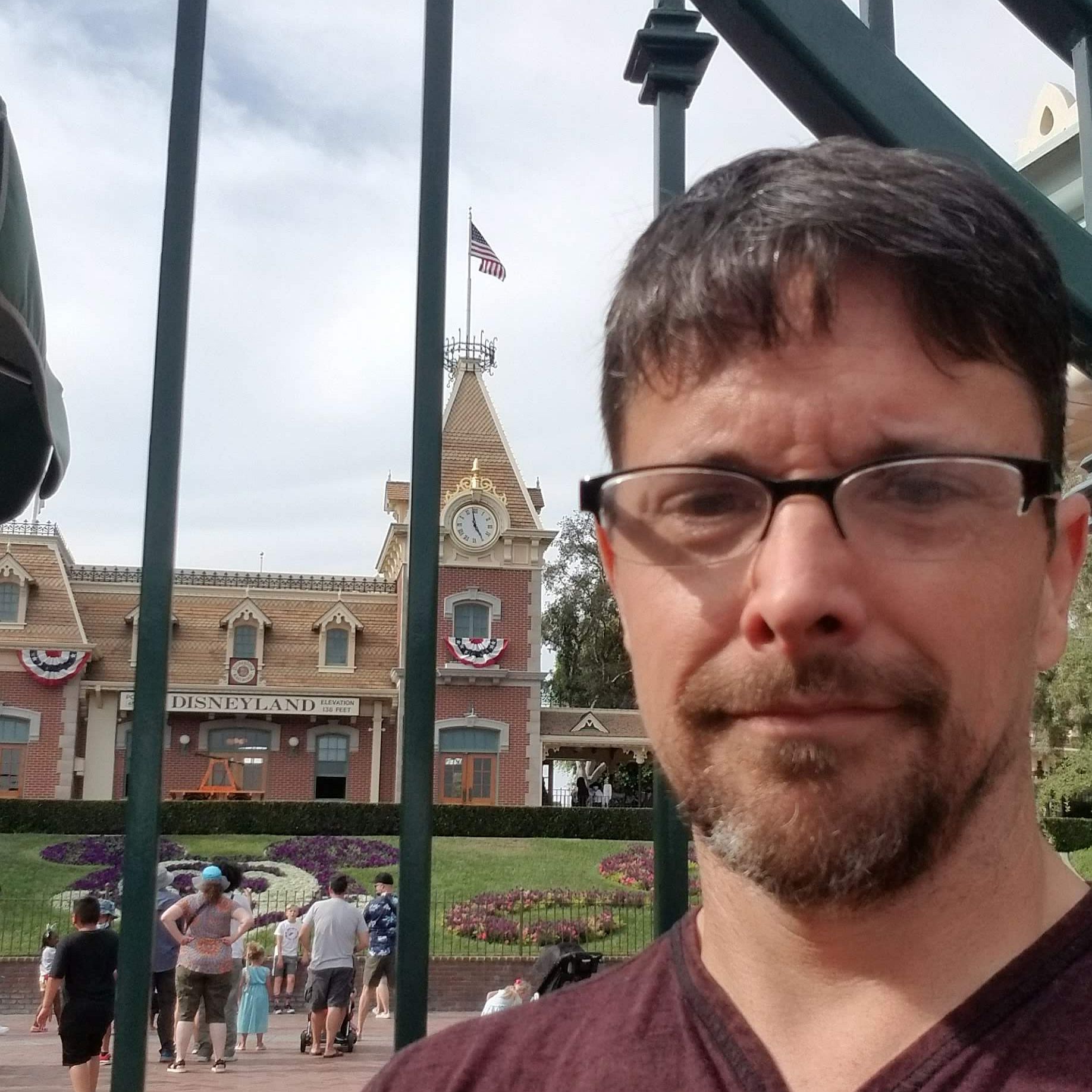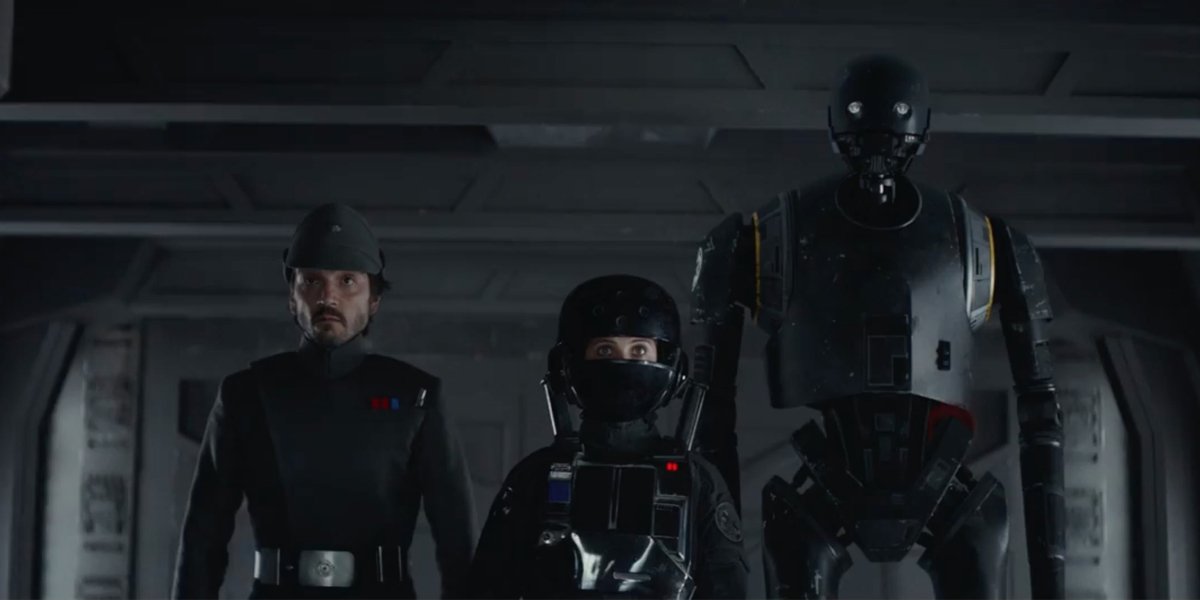How Fast Is Hyperspace? The Star Wars Team Has The Perfect Answer

Star Wars is an odd franchise that has seemingly had difficulty finding classification. While the stories take place in another galaxy full of starships and and other advanced technology, there are those that don't consider the franchise to be science fiction. It's certainly true that elements like The Force are more mystical than scientific, and Star Wars certainly doesn't worry about embedding its concepts in actual, or even theoretical, science the way Star Trek largely does.
One example of this is the Star Wars concept of "hyperspace." While entering hyperspace involves traveling faster than the speed of light, a common part of distance travel in science fiction stories, the details of hyperspace are a bit more vague than that. Just how fast is a ship going when it is traveling in hyperspace? It turns out, the Lucasfilm Story Group doesn't worry too much about those details, as Rogue One: A Star Wars Story co-writer Gary Whitta recently revealed that the Star Wars brain trust told him, hyperspace moves exactly as fast as the story requires. According to Whitta...
The way I heard it was hyperspace moves at the speed of plot, which is, whatever is the most dramatically interesting time it takes to get from somewhere to somewhere else, that’s how long it takes.
The revelation came from Gary Whitta during a recent IGN rewatch of Rogue One: A Star Wars Story.
Entering hyperspace requires a ship that can travel faster than the speed of light, but once you're inside hyperspace, it's less clear exactly how fast you re traveling, or how fast you can travel. In the end that lack of clarity is quite intentional as it means that ships trying to get from one place to another will arrive at their destination at the point when the story needs them there, and not a second sooner, or later.
In the end, the goal of Star Wars is to tell good stories, and all the other details are in service of that goal. Gary Whitta himself agrees with this perspective. He says that if the real science can support a story point, that's great, but when story and science come into conflict, the story must always win.
While Neil deGrasse Tyson might not be able to watch a movie with scientific inaccuracies without incessantly pointing them out, the rest of us are probably much more willing to suspend disbelief for the period of a movie. A lack of scientific accuracy wouldn't hurt, and a story that had to bend over backwards to be more accurate might potentially lose a lot of great drama.
Whether you consider Star Wars to be science fiction or fantasy or simply a fairy tale isn't that important. You're either a fan or you're not, and fans are looking for great Star Wars stories. If you're too focused on the details of hyperspace, you probably aren't worrying about the characters too much.
CINEMABLEND NEWSLETTER
Your Daily Blend of Entertainment News

CinemaBlend’s resident theme park junkie and amateur Disney historian, Dirk began writing for CinemaBlend as a freelancer in 2015 before joining the site full-time in 2018. He has previously held positions as a Staff Writer and Games Editor, but has more recently transformed his true passion into his job as the head of the site's Theme Park section. He has previously done freelance work for various gaming and technology sites. Prior to starting his second career as a writer he worked for 12 years in sales for various companies within the consumer electronics industry. He has a degree in political science from the University of California, Davis. Is an armchair Imagineer, Epcot Stan, Future Club 33 Member.
Most Popular






